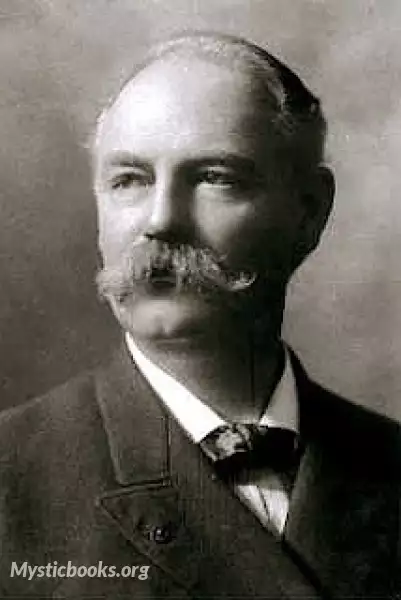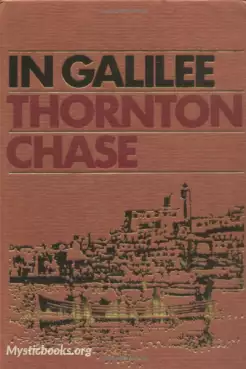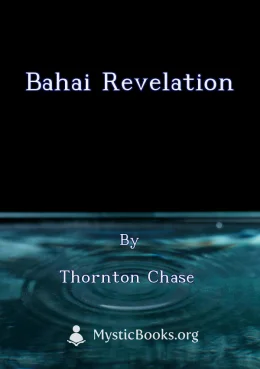
Timeline
Title
Country/Nationality
Thornton Chase
Thornton Chase was a distinguished officer of the United States Colored Troops during the American Civil War, and the first western convert to the Baháʼí Faith.
Chase was born in Springfield, Massachusetts to parents of English background and Baptist religion. After being schooled for college by Rev. Samuel Francis Smith he instead enrolled as an officer in the American Civil War serving with two regiments of United States Colored Troops, mostly in South Carolina, where he was wounded. For his service Chase was included on the Wall of Honor of the African-American Civil War Memorial completed in 1997. After the war he worked as a businessman, performed as a singer, and was published as a writer of prose and poetry while living in several states after leaving Massachusetts. He married twice and fathered three children.
He was born James Brown Thornton Chase on 22 February 1847 in Springfield, Massachusetts to parents who traced their family back to Britain, and Baptist religion. His father was Jonathan, or Jotham, G and mother Sarah C. G. S. (Thornton) Chase. His father was a singer, amateur scientist, and wealthy businessman, and was a descendant of Aquila Chase who migrated from Chesham in 1630 and of many other colonial families (such as Thomas Dudley). Chase's mother, who was of similar pedigree, died about two weeks after he was born, an event that profoundly shaped Chase's subsequent development. Chase's father remarried three years later and the couple adopted three girls. But instead of being raised at home the United States 1850 census shows that he was living with a foster family in West Springfield at the three years old. Chase himself describes his childhood as "loveless and lonely," and from it he pursued a personal mystical relationship with God.
Chase began to attend Brown University in September 1866, and was elected class secretary, but left school before completing the second semester. He returned to Springfield, where he became a worked for his father's lumber business – and joined the Mendelssohn club. On 11 May 1870 he married Annie Elizabeth Allyn of Bristol, Rhode Island, and they had two children: Sarah Thornton (1871–1908) and Jessamine Allyn (1874–1947). Chase's activities in work in society multiplied: he started his own specialty lumber business, directed the choir of First Baptist Church, and served as an officer in one of Springfield's musical organizations, and performed in a local concert.
In 1872 Chase's business failed. Unemployed, he moved to Boston leaving his wife and children, where he obtained a meager and unsatisfying living as an actor and singer. In 1873, amidst the Panic of 1873 and subsequent Long Depression and its privations, Chase described having what he called a mystical experience of God's love, of love "unspeakable," of "absolute oneness," which set him on a path of renewed hope in a religious search. Not finding sufficient work to support him and his family in Boston, Chase moved to Fort Howard (Green Bay, Wisconsin), where he taught school. The first high school graduates of the city ever were in 1875. He moved to Chicago briefly and then he moved to Kansas with teaching and music tutoring jobs and was visible in the local newspapers in 1879 in a regional music convention. However the school broke up. Next Chase settled in Del Norte, Colorado as an early mining town but was not successful. Meanwhile, Annie remained in Springfield living with her mother and their two daughters, waiting for her husband to provide his family support. However in March 1878 she moved back to Rhode Island and filed for divorce. He wrote a certified letter responding, and despite family pressure to reconcile, Annie persevered and the court granted the divorce. Chase had little to do with the family after that. Annie lived the rest of her days in Newport, Rhode Island, dying in 1918. Chase's older daughter, Sarah, married in 1895 and had five children before dying suddenly in 1908. Chase's last daughter, Jessamine, never married and became a school teacher and musician; she died in 1947. A letter from some family in New York looking for him was published looking for him some years later in South Dakota. Meanwhile he met and married Eleanor Francesca Hockett Pervier on 6 May 1880 and they settled in Pueblo, Colorado.
Thornton Chase died on 30 September 1912 in Los Angeles, age 65, of complications following unsuccessful surgery. Chase managed a note to his friend John Bosch while in the hospital. The surgery was not successful and Chase was in pain some 5 days before dying, probably of cancer. ʻAbdu'l Bahá was on a train en route to California at the time; He immediately changed his plans and went to Los Angeles to visit Chase's grave. There he praised Chase's qualities highly, instructed the Baháʼís to hold a commemoration of Chase annually at his grave, and encouraged Baháʼís to visit the gravesite.
Books by Thornton Chase

In Galilee
Thornton Chase is commonly recognized as the first convert to the Bahá'í Faith of Occidental background. During his life he organized many Bahá'í activities in Chicago and Los Angeles and was considered a prominent Bahá'í. In 1907 Chase was able to g...

Bahai Revelation
The Bahá'í Revelation is an introductory book to the Bahá'í Faith written by Thornton Chase, who is recognized as the first convert to the Bahá'í Faith of Occidental background. The book was published in 1909 and provides a comprehensive and accurate...